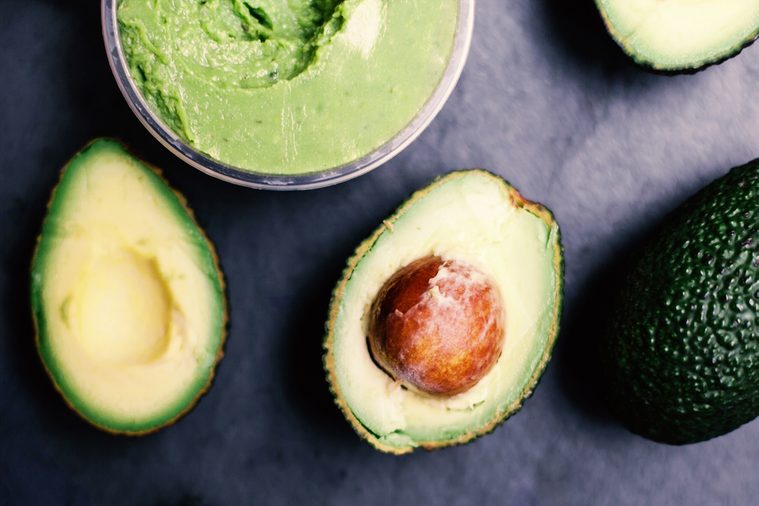
When you’re one of the 15 percent
Most of us have experienced some mild gastrointestinal (GI) discomfort, such as gas, bloating, pain in the lower belly, and constipation or diarrhea. When it comes to constipation or diarrhea, the symptoms may be attributed to irritable bowel syndrome (IBS). IBS, like many syndromes, is a diagnosis that can read like a laundry list of symptoms, but no one can pinpoint the actual cause. IBS affects 10 to 15 percent of the worldwide population, according to the International Foundation for Gastrointestinal Disorders. In order to make the diagnosis of IBS, symptoms generally need to persist longer than six months. (If you have abdominal pain that’s not accompanied by bowel changes like constipation or diarrhea, here are some other causes of stomach pain and discomfort that are not irritable bowel syndrome.)

Symptom: You feel discomfort in your belly
For some, a key tip-off to an IBS diagnosis is lower abdominal pain occurring on and off for a few months—but only if it’s accompanied by bowel changes, such as diarrhea or constipation or both, says Eamonn M.M. Quigley, MD, director of the Lynda K. and David M. Underwood Center for Digestive Disorders at Houston Methodist Hospital. There’s an impressive amount of evidence accruing that a gut dysbiosis, or disturbed intestinal ecology, is at the root of IBS, notes a report in the World Journal of Gastroenterology. Correspondingly, manipulation of gut bacteria—by taking probiotics, prebiotics, and either specialized antibiotics or herbal antimicrobials—represents promising new treatment.

Risk factor: You’re a woman under age 50
For unknown reasons, women sufferers outnumber men two to one, according to the National Institute of Diabetes and Digestive and Kidney Diseases. The form of IBS tends to differ by sex, as well. “Women are more likely to experience constipation and bloating, while men are more likely to have diarrhea,” Dr. Quigley says. Irritable bowel syndrome becomes less common after people reach their 50s. “Whether that’s due to the hormonal changes of menopause, or alterations in the gut bacteria that come with age, or something else connected to aging, no one knows,” says Dr. Quigley. Learn which foods you should avoid if you have irritable bowel syndrome.

Symptom: You experience gastric distress when you eat FODMAPs
What do avocados, lentils, bread, milk, garlic, and soda sweetened with high fructose corn syrup have in common? They contain carbohydrates known as FODMAPs, which can trigger G.I. symptoms in people with IBS (and others, as well). “FODMAPs are osmotic—they pull water into the intestinal tract. They may not be digested or absorbed well and could be fermented upon by bacteria in the intestinal tract when eaten in excess,” according to the Digestive Health Center Nutrition Services of Stanford University Medical Center. “When bacteria ferment these carbohydrates, they produce gas, which is irritating to sensitive people,” Dr. Quigley notes. There are five categories of FODMAPs and you can have a problem with one but not another. One way to test your sensitivity is to try a diet that restricts FODMAPs. A low-FODMAP diet has been successful in relieving IBS symptoms in many people. This type of diet should only be temporary and always done under the supervision of a physician or nutritionist. These are the FODMAP foods that might be making your IBS symptoms worse.

Risk factor: You had unexplained abdominal pain when you were young
A subset of IBS sufferers may have had functional abdominal pain as children. Functional abdominal pain is “abdominal pain that cannot be explained by any visible or detectable abnormality after a thorough physical examination and appropriate further testing if needed,” according to the American College of Gastroenterology (ACG). It’s quite common. “Almost a quarter of all children seen for stomach or intestinal complaints have functional abdominal pain,” the ACG adds. Having experienced this pain in childhood, you may have developed sensitivity and react strongly to stimulation (such as bloating due to excess gas) inside the large intestine. If your childhood was relatively stomachache free, a similar hypersensitivity could have been sparked by other factors, including a previous infection in the GI tract, for example, due to food poisoning. Learn the signs your irritable bowel syndrome is actually food sensitivity.

Symptom: You’re suffering from fatigue
“Fatigue is a common symptom of irritable bowel syndrome,” says Dr. Quigley. While doctors don’t know the exact reason, some patients with irritable bowel syndrome show signs of body-wide inflammation, that can cause muscle and joint aches and pains and disrupt neurotransmitters, causing brain fog and sleep disruption. “People who don’t suffer from IBS often underestimate how the condition impairs quality of life,” Dr. Quigley notes.

Risk factor: You took a lot of antibiotics when you were a kid
The GI tract is host to trillions of bacteria, both good and bad, that perform important functions, such as digesting otherwise indigestible carbohydrates (including FODMAPs) and aiding in the production of vitamins, like K and B. A good balance of bacteria in the gut is crucial for the optimal functioning of the immune system. According to Dr. Quigley, epidemiological evidence suggests that antibiotic use in childhood is connected to the later development of IBS. “The theory is that the antibiotics caused changes in the gut microbiome that are relevant to IBS,” he says.

Risk factor: You’re stressed out
Your stomach fills with butterflies at the anticipation of public speaking. Or your digestive system shuts down when you’re having a disagreement with your partner or are under the gun at work. The connection between the digestive system and the brain is known as the gut-brain axis (GBA). The microbes of the gut microbiota interact with the GBA in several ways, but two important ones have to do with stress. The vagus nerve that runs the length of our body carries feedback from the gut to the areas of the brain that handle emotions; the brain, in turn, sends signals back to the gut that disrupts digestion depending on one’s psychological situation. Stress can be a major trigger for symptoms, Dr. Quigley says. For a small segment of people, past stress may also play a role. “A higher than expected percentage of people with IBS have a history of childhood trauma such as the death of a parent or sexual abuse,” notes Dr. Quigley. Childhood trauma, in effect, can rewire the gut-brain axis. These are the signs to look for that your microbiome is in trouble.

Risk factor: You suffer from fibromyalgia
“Fibromyalgia is a disorder characterized by widespread musculoskeletal pain accompanied by fatigue, sleep, memory, and mood issues. Researchers believe that fibromyalgia amplifies painful sensations by affecting the way your brain processes pain signals,” notes the Mayo Clinic. According to Dr. Quigley, 50 to 60 percent of fibromyalgia patients also have irritable bowel syndrome.

Risk factor: Some members of your family have IBS
“It’s very common to see familial trends in IBS. If your mother, sister, and aunt have IBS, you might have it, too,” Dr. Quigley says. “But a clear genetic pattern hasn’t been found.” Right now, it’s uncertain if genetic factors are at play or if it’s something in the shared environment that impacts disease prevalence. Next, learn some easy ways to naturally relieve IBS symptoms.
